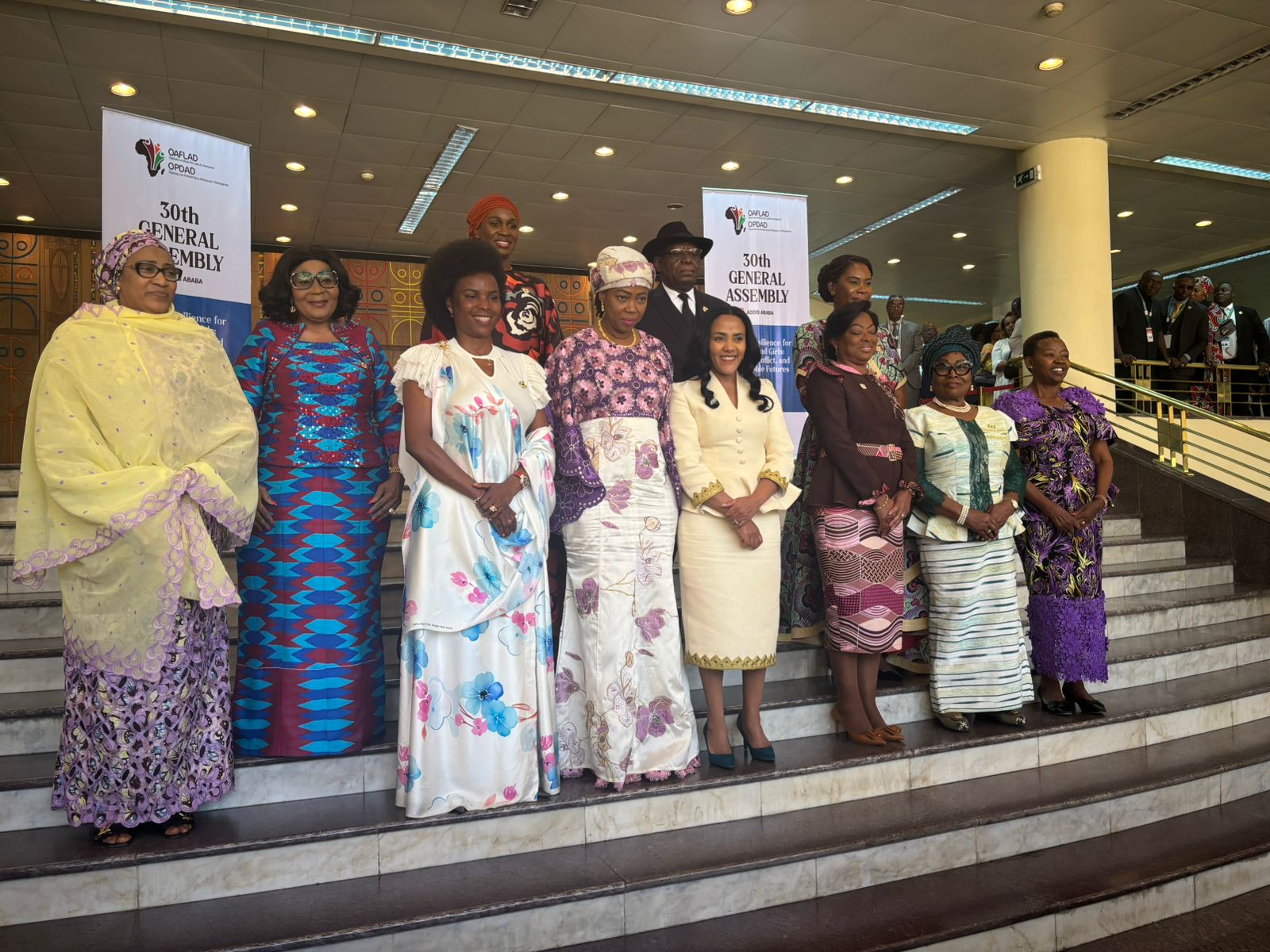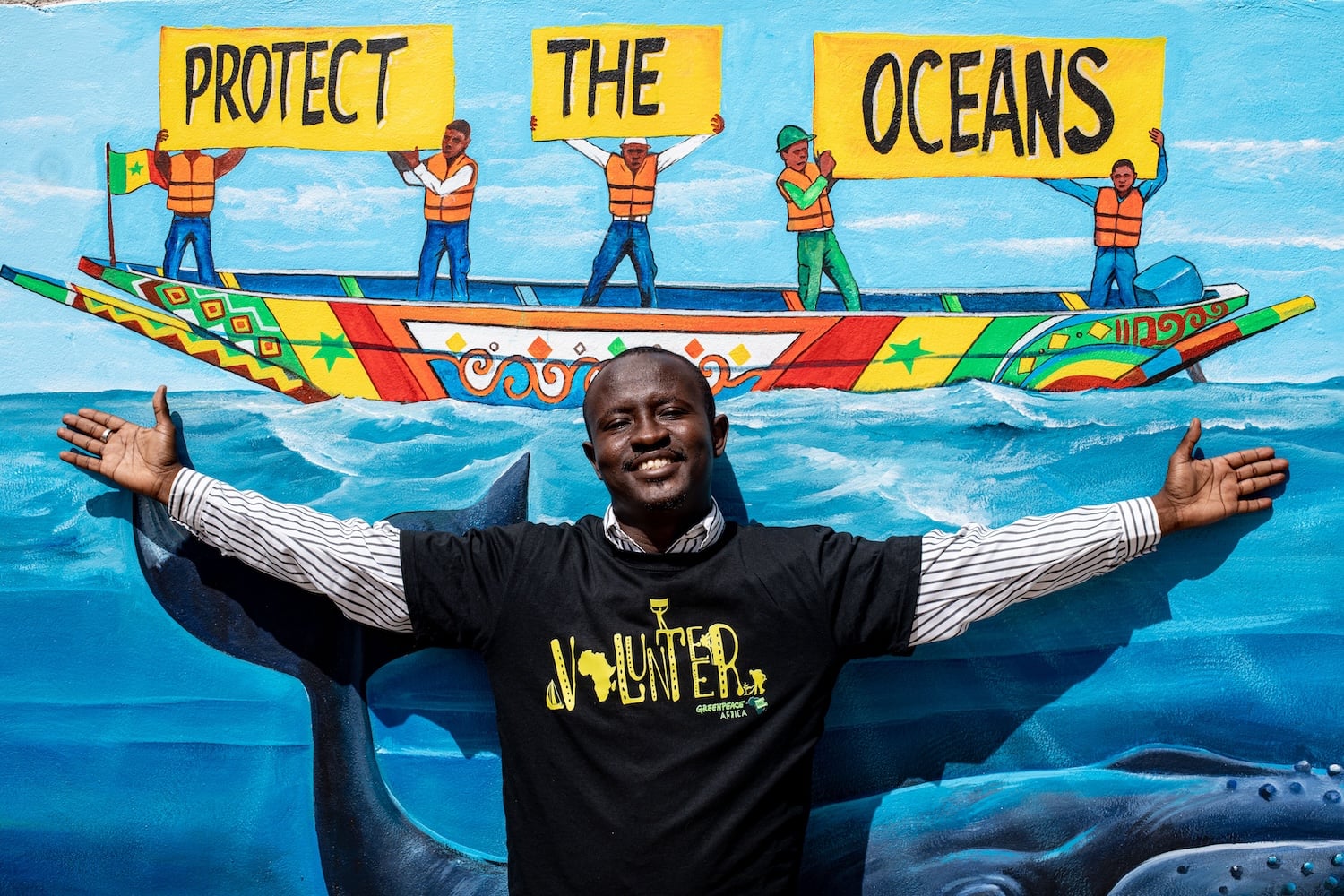Abuja, Nigeria: May 7, 2025 –In a watershed moment for the promotion of environmental justice in Nigeria, more than 40 Civil Society Organisations (CSOs) joined forces to launch the Nigerian Climate Justice Movement (CJM). A declaration was issued at the end of a landmark two-day event held in Abuja. The declaration reinforces the resolve of CSOs in holding corporations accountable for environmental damage and biodiversity destruction while amplifying Africa’s demands in global climate justice debates.
The Climate Justice Movement, spearheaded by Greenpeace Africa, aims to connect isolated climate voices and responses under one umbrella movement to collectively address the disproportionate impact of climate change on the African continent.
Ogunlade Olamide Martins, Associate Director (Climate Change) for Corporate Accountability and Public Participation Africa (CAPPA), one of the signatories, stated: “This declaration represents a turning point for grassroots environmental movements in Nigeria. For too long, our struggles have been fragmented despite facing common threats from extractive industries. By uniting under the Climate Justice Movement, we multiply our collective power and create space for community voices to shape the solutions.”
Sherelee Odayar, Oil and Gas Campaigner at Greenpeace Africa, said: “For decades, oil giants like Shell have extracted billions in profits from Nigerian soil while leaving behind devastated ecosystems and broken communities. Recent media investigations exposing Shell’s negligence in the Niger Delta is an example of the toxicity and selfish, unempathetic profiteering that communities have endured for generations. Through this declaration, we’re sending a clear message: the era of unchecked pollution and corporate impunity is over – it’s time for polluters to pay.”
Cynthia Moyo, Climate and Energy Campaigner at Greenpeace Africa, said: “Nigeria stands at a crossroads in its energy future. As we witness intensifying flooding in the Niger Delta and advancing desertification in the north, it’s clear that climate change requires systemic solutions. This movement isn’t just about cleaning up past damage – it’s about shaping a just transition that centres African realities and protects communities from both climate impacts and false solutions like carbon trading that simply perpetuate exploitation.”
Elizabeth Atieno, Food Security Campaigner at Greenpeace Africa, highlighted the connection between pollution and food security: “Oil spills have contaminated once-fertile soils and fishing grounds across the Niger Delta, creating a food crisis that disproportionately affects women and children. When farmers can’t farm and fisherfolk can’t fish, entire communities face malnutrition and economic devastation. Climate justice is fundamentally about securing the right to food sovereignty in the face of corporate environmental abuses.”
Despite contributing minimally to global greenhouse gas emissions, Africa suffers some of the most severe climate impacts, with warming already exceeding the global average. Between July and October 2024, floods affected 34 states across Nigeria, impacting over 4 million people, with more than 300 lives lost and over 2,854 people injured. Nigeria’s catastrophic 2022 floods killed over 600 people, displacing 1.4 million citizens, and affecting more than 4.4 million across 33 states. The disaster destroyed over 200,000 homes and damaged 676,000 hectares of farmland, worsening food insecurity in a country already facing economic challenges.
Another signatory, Ibrahim Muhammad Shamsuddin, Program Manager at Yanayl Haki Afriqya, added, “The youth of Nigeria are demanding accountability from corporations and policymakers. We refuse to inherit a country where profits routinely take precedence over people and planet, having lived the realities that climate change impacts pose to our communities. This declaration is our pledge to transform environmental advocacy in Nigeria from isolated campaigns into a formidable, unified force that drives positive change towards access to a safe and healthy environment for all, which is a fundamental human right.”
The CJM declaration outlines comprehensive demands, including immediate remediation of oil-polluted sites in the Niger Delta, compensation for communities affected by decades of extraction, ending gas flaring practices, transitioning to renewable energy infrastructure, strengthening regulatory frameworks against corporate environmental abuses and rejection of false solutions like carbon trading.
The coalition brings together diverse organisations working across environmental sectors, including ocean conservation, forest protection, climate advocacy, and community rights. CJM Nigeria is the fourth launch, with successful previous launches in the DRC, Cameroon, and Ghana.
The coalition will now focus on implementing a coordinated action plan, engaging government authorities, and expanding the movement across West Africa.
ENDS
For more information or interview requests, please contact:
Dr. Ignatius Emeka Onyekwere, Media Consultant for CJM Nigeria, [email protected], +234 810 038 5897
Ferdinand Omondi, Communication Manager, Greenpeace Africa, [email protected], +254 722 505 233
Notes to Editors:
About Greenpeace Africa:
Greenpeace Africa is an independent environmental campaigning organisation established in 2008 that operates across the African continent with offices in Senegal, Kenya, the Democratic Republic of Congo, Cameroon and South Africa. As part of the global Greenpeace network, the organisation works to protect and conserve Africa’s natural environment while advocating for peace and environmental justice.
About the Climate Justice Movement
The Climate Justice Movement (CJM) is a pan-African initiative that unites grassroots organisations to address environmental challenges across the continent.
The CJM represents a cornerstone of Greenpeace Africa’s strategy to build people-powered movements that challenge corporate environmental exploitation while elevating local communities as agents of change in environmental decision-making processes.



